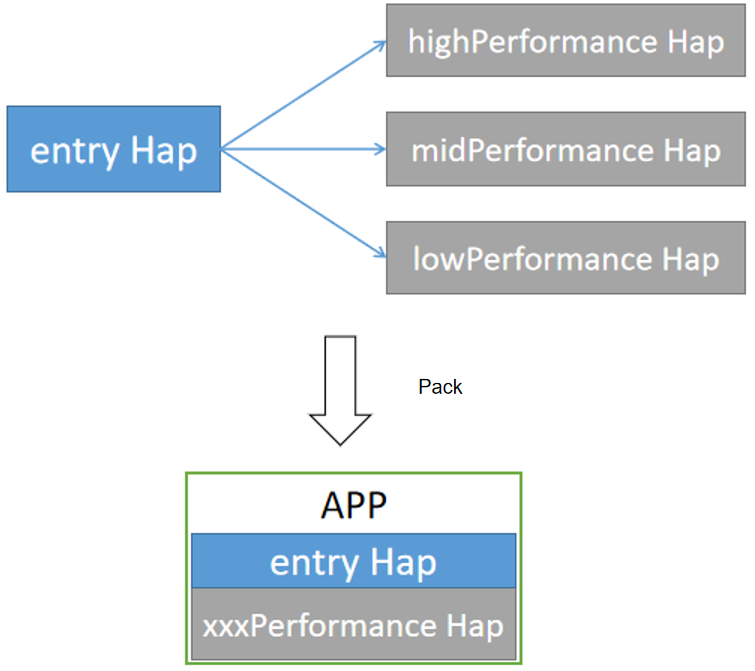# ExtensionContext
The **ExtensionContext** module, inherited from **Context**, implements the context for Extension abilities.
This module provides APIs for accessing resources of a specific Extension ability. An Extension ability can use the context directly provided by **ExtensionContext** or that extended from **ExtensionContext**. For example, **ServiceExtension** uses [ServiceExtensionContext](js-apis-inner-application-serviceExtensionContext.md), which extends the capabilities of starting, stopping, binding, and unbinding abilities based on **ExtensionContext**.
> **NOTE**
>
> - The initial APIs of this module are supported since API version 9. Newly added APIs will be marked with a superscript to indicate their earliest API version.
> - The APIs of this module can be used only in the stage model.
## Modules to Import
```ts
import common from '@ohos.app.ability.common';
```
## Attributes
**System capability**: SystemCapability.Ability.AbilityRuntime.Core
| Name| Type| Readable| Writable| Description|
| -------- | -------- | -------- | -------- | -------- |
| currentHapModuleInfo | [HapModuleInfo](js-apis-bundleManager-hapModuleInfo.md) | Yes| No| Information about the HAP file.
(See **api\bundle\hapModuleInfo.d.ts** in the **SDK** directory.) |
| config | [Configuration](js-apis-app-ability-configuration.md) | Yes| No| Module configuration information.
(See **api\@ohos.app.ability.Configuration.d.ts** in the **SDK** directory.)|
| extensionAbilityInfo | [ExtensionAbilityInfo](js-apis-bundleManager-extensionAbilityInfo.md) | Yes| No| Extension ability information.
(See **api\bundle\extensionAbilityInfo.d.ts** in the **SDK** directory.)|
## When to Use
**ExtensionContext** provides information about an Extension ability, module, and HAP file. You can use the information based on service requirements. The following uses **ServiceExtension** as an example to describe a use case of **ExtensionContext**.
**Scenario description**
To adapt to devices with different performance, an application provides three modules: highPerformance, midPerformance, and lowPerformance. Each of them provides a ServiceExtensionAbility for the entry. During application installation, the application market installs the HAP file of the entry and the HAP file of the module that matches the device performance. During application running, the entry parses **ServiceExtensionContext.HapModuleInfo** to obtain the HAP file information and executes service logic based on this file.

**Example**
Define a **ServiceExtension** with the same name for the three modules.
```ts
// Singleton object GlobalContext.ts
export class GlobalContext {
private constructor() {}
private static instance: GlobalContext;
private _objects = new Map();
public static getContext(): GlobalContext {
if (!GlobalContext.instance) {
GlobalContext.instance = new GlobalContext();
}
return GlobalContext.instance;
}
getObject(value: string): Object | undefined {
return this._objects.get(value);
}
setObject(key: string, objectClass: Object): void {
this._objects.set(key, objectClass);
}
}
```
```ts
import ServiceExtension from '@ohos.app.ability.ServiceExtensionAbility';
import Want from '@ohos.app.ability.Want';
import rpc from '@ohos.rpc';
import { GlobalContext } from '../GlobalContext'
export default class TheServiceExtension extends ServiceExtension {
onCreate(want: Want) {
console.log('ServiceAbility onCreate, want: ${want.abilityName}');
GlobalContext.getContext().setObject("ExtensionContext", this.context);
}
onRequest(want: Want, startId: number) {
console.log('ServiceAbility onRequest, want: ${want.abilityName}, startId: ${startId}');
}
onConnect(want: Want) {
console.log('ServiceAbility onConnect, want: ${want.abilityName}');
let remoteObject = new rpc.RemoteObject("test");
return remoteObject;
}
onDisconnect(want: Want) {
console.log('ServiceAbility onDisconnect, want: ${want.abilityName}');
}
onDestroy() {
console.log('ServiceAbility onDestroy');
}
};
```
Start **ServiceExtension** within the **onCreate** callback of the main ability of the entry.
```ts
import UIAbility from '@ohos.app.ability.UIAbility';
import AbilityConstant from '@ohos.app.ability.AbilityConstant';
import Want from '@ohos.app.ability.Want';
export default class EntryAbility extends UIAbility {
onCreate(want: Want, launchParam: AbilityConstant.LaunchParam) {
console.log('[Demo] EntryAbility onCreate');
let wantExt: Want = {
deviceId: '',
bundleName: 'com.example.TheServiceExtension',
abilityName: 'TheServiceExtension',
};
this.context.startServiceExtensionAbility(wantExt);
}
};
```
Create a **ServiceModule.ts** file in the entry to execute service logic.
```ts
import common from '@ohos.app.ability.common';
import { GlobalContext } from '../GlobalContext';
export default class ServiceModel {
moduleName: string = '';
constructor() {}
executeTask() {
if (GlobalContext.getContext().getObject('ExtensionContext') === undefined) {
console.log('ERROR, ServiceExtension does not exist');
return;
}
let extensionContext = GlobalContext.getContext().getObject('ExtensionContext') as common.ServiceExtensionContext;
this.moduleName = extensionContext.currentHapModuleInfo.name;
// Execute service logic based on the module name, which differentiates devices with different performance.
switch (this.moduleName) {
case 'highPerformance':
console.log('This is high performance device.');
// Execute the corresponding service logic.
break;
case 'midPerformance':
console.log('This is mid performance device.');
// Execute the corresponding service logic.
break;
case 'lowPerformance':
console.log('This is low performance device.');
// Execute the corresponding service logic.
break;
default:
console.log('ERROR, invalid moduleName.');
break;
}
}
};
```